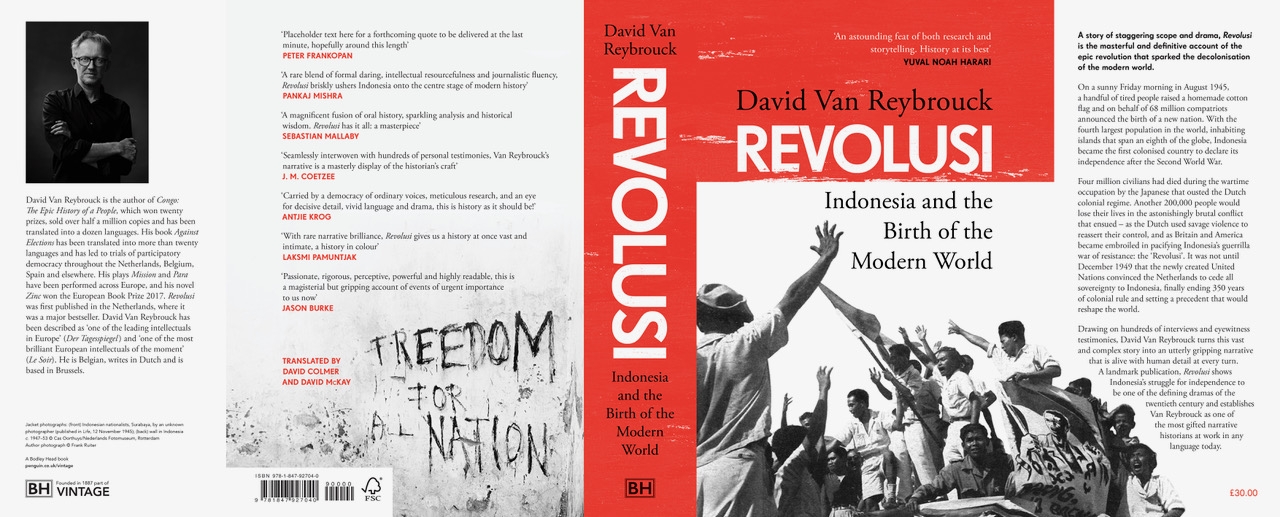
Revolusi erhält begeisterte Kritiken
'A majestic and beautifully written ode to revolution that aims to remind us of the immense significance of this period of history… compellingly written and marvellously translated.'
Times Literary Supplement
'A long overdue and utterly compelling narrative history of the birth of Indonesia . . . unfolds over a vast geopolitical canvas and yet never falters . . . It is as intricate as the waterways of the archipelago and yet it hums along, like a steamer on the Java Sea, propelled by the stories of its astonishing cast.'
Financial Times
'Relating the story of this place is . . . a mammoth task, requiring a monumental research effort. This is what the Belgian historian David Van Reybrouck has achieved in his superb history, Revolusi.'
Guardian
David Van Reybrouck's immensely readable new history…fills an important gap….Van Reybrouck has visited just about every place that figures in Indonesia's history, and evokes them with a narrative zest all too rare among historians.Adam Hochschild, Atlantic
An outstanding account of one nation's unsung fight for freedom…The firsthand narratives are enthralling…[A] magnificent book.Washington Independent Review of Books
'A wonderful and important book. David Van Reybrouck has written an authoritative and powerful history of Indonesia that not only reframes the birth of a nation but helps challenge ideas about the end of the European Age of Empire'
Peter Frankopan
'History as it should be. Carried by a democracy of ordinary voices, meticulous research, an eye for decisive detail, vivid language and drama, Van Reybrouck forges a fantastic visionary compass to where history was heading at the time: the imagining of a new world order by people of colour
Antjie Krog
'In “Revolusi”, the author is a historian who gets his boots dirty. From remote Asian islands to Dutch nursing homes, David Van Reybrouck has tracked down eyewitnesses to Indonesia’s colonial period, producing the definitive account of a neglected epoch.'
The Economist
